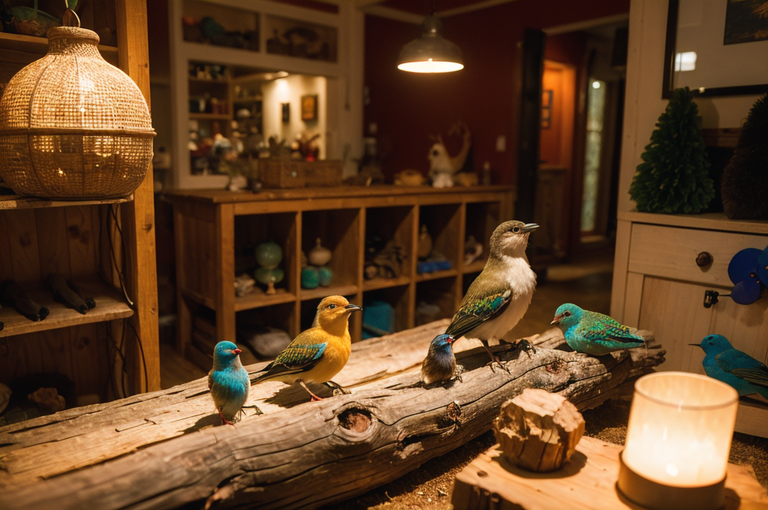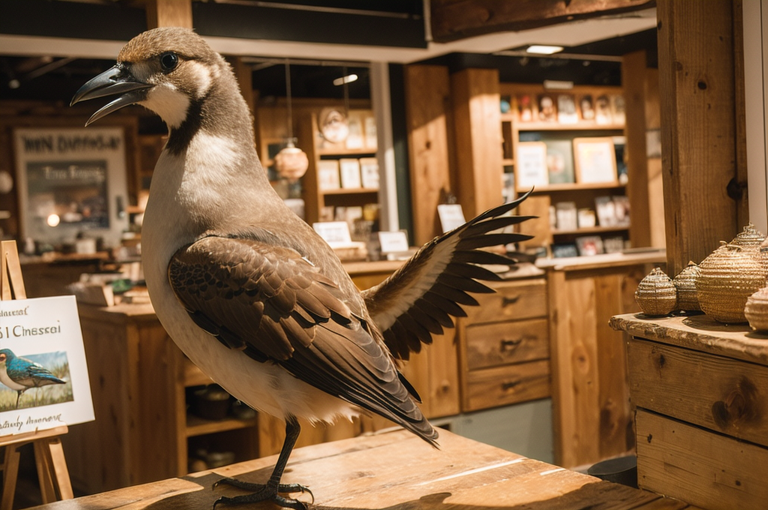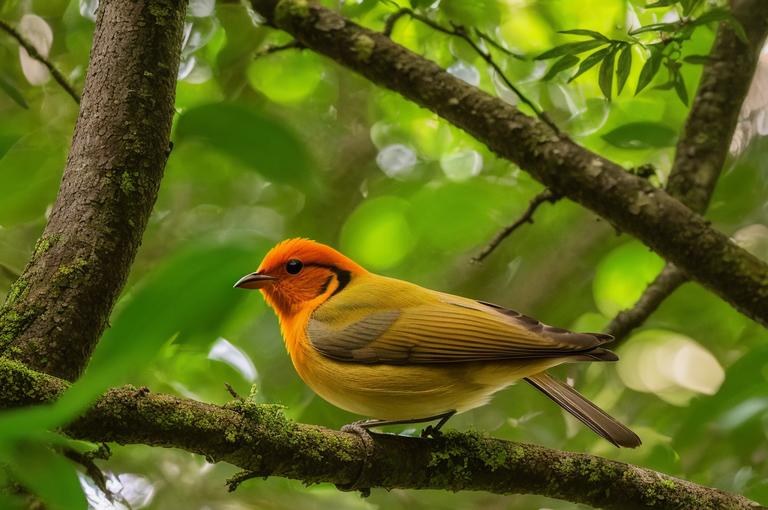Exploring the Hobby of Birdwatching: Feeders, Seeds, Conservation, and Community Engagement

Birdwatching and feeding are popular activities in America with various bird feeders and seeds available. Ensuring sanitation of bird feeder areas is crucial for bird health. Wild Birds Unlimited provides bird-related products and shares conservation tips via social media.
An Invitation to Birdwatching and Bird Feeding
This article celebrates the American love affair with birdwatching, highlighting bird feeding as an enriching winter pastime. Join us in discovering the joy of learning about different bird species and how the birdwatching community engages with conservation efforts.
The American Love Affair with Birdwatching
Did you know that the fondness for feathered encounters is more than a hobby for many folks in America? Birdwatching is, indeed, a multi million dollar industry, often dubbed as an avian love affair in the country. Like the urge to sing at the sight of Wild Birds Unlimited Nashville, the passion for these winged wonders often sends enthusiasts exploring vast landscapes, armed with binoculars.
Bird Feeding: An Enriching Winter Pastime
Ah, the delicate art of bird feeding! Did you know it’s one of America’s favorite outdoor winter activities? There’s a special charm in tossing bits of bread or seeds to invite a flurry of feathered friends. The visits of an array of vibrant species, each with its unique song and dance, imbues me with the same child like wonder my father passed on.
The Joy of Learning About Different Bird Species
Birdwatching offers an irresistible prospect to dip one’s toes in the ever churning river of knowledge about our avian neighbors. The interactions and observations with different species are a delightful way to learn, giving one a whirlwind tour of the captivating avian world. Each bird offers a fascinating narrative, which, through our encounters, we begin to unravel.
As an enthusiast, you will learn the gentle punctuality of the early lark, the playfulness of the purple martins, or the stoic majesty of the Alaskan eagles. However, casual or keen your interest may be, birds bring life to our backyards and offer us a chance to peek into an entirely different world. So, shall we morph into inquisitive ornithologists today? The mysteries of the feathered world eagerly await your exploration.

Types of Bird Feeders
As I wander through the Wild Birds Unlimited Mobile AL, I find myself reflecting on the myriad types of bird feeders that adorn many a garden and backyard, each designed with the aim of attracting specific bird species. Just as our feathered friends are diverse in their tastes and feeding habits, so are the feeders designed to cater to them. There are, for example, tube feeders, well loved by finches, and platform feeders, perfect for larger species fond of ground feeding.
Different Varieties of Bird Feeders
From intricately designed hopper feeders that attract larger birds such as the cardinals, to simple yet effective suet feeders inviting woodpeckers, nuthatches, and chickadees for a meal—each variety has its own charm and function. Like the delicate hummingbird nectar feeders, which I liken to the sonnets in the avian world—sweet, endearing, and forever enchanting.
Factors Influencing the Choice of Bird Feeders
Choosing the right bird feeder isn’t always a walk in the park though. One must consider attributes such as durability, especially in areas where squirrels make frequent appearances. The size and opening of the feeder must cater to the bird species you are hoping to host. In my homeland of Alabama, the sounds of the crimson tide often guide my choice. The mellifluous melodies and spritely chatter from chickadees, titmice, and blue jays encourage me toward versatile feeders that cater to a number of different species.
DIY Solutions for Constructing Bird Feeders
If you’re a bit like me—adventurous and up for a challenge—you might consider venturing into the realm of DIY bird feeders. I’ve had joyous experiences transforming everyday household items—like pie plates—into wonderful hubs of avian activity. These homemade feeders not only cater brilliantly to the bird species but also encapsulate a sense of personal satisfaction, knowing I’ve contributed positively to the lives of our winged companions.

Importance of Quality Bird Seeds
As an ornithologist and a bird enthusiast, I can’t overstate the significance of high quality bird seeds. They are to wild birds what a three course meal is to us humans fulfilling, nourishing and delightful. Just as we are Wild Birds Unlimited Mount Pleasant, bird species rely on seed variety for a balanced diet.
Role of Black Oil Sunflower Seeds in Attracting Birds
Have you ever noticed particular affection of your feathered guests towards black oil sunflower seeds? Well, I have. These little seeds are rich in oil content, which not only supplies birds with high energy but also helps keep their feathers shiny and healthy. Whether it’s a black capped chickadee or a northern cardinal, black oil sunflower seeds certainly have a universal appeal.
Different Bird Species Attracted by Various Types of Seeds
While black oil sunflower seeds are the favored choice for many, there’s still a dizzying variety of seeds that different bird species find desirable. Cardinals and finches, for instance, are partial to safflower seeds, while millet is a top pick for sparrows and doves.
Methods of Placing Bird Seeds - Bird Feeders or Open Spaces
Choosing the perfect placement for bird seeds is also key to luring these beautiful creatures. I’ve found putting seeds in bird feeders or scattering them in open spaces like the yard does equal justice. However, bird feeders work remarkably well for smaller birds that prefer the safety of heights. Larger species, on the other hand, feel more comfortable foraging on the ground.
In conclusion, a combination of selected quality seeds and strategic positioning promises an enchanting array of flight and feathers in your very own backyard, creating a haven for bird species. So, explore, experiment and witness the magic of birds flocking right before your eyes.

Sanitation Measures for Bird Feeder Areas
Just as we maintain our nests, so too must we go above and beyond to maintain the spaces in which our feathered friends dine – it is in this spirit that I share my knowledge of sanitation measures for bird feeder areas. Ensuring cleanliness at these feeding stations is paramount, as the potential risk for the spread of diseases among bird species increases exponentially if this duty is neglected an aspect borne out through my own observational studies at Wild Birds Unlimited Mishawaka.
Importance of Sanitary Maintenance of Bird Feeders
Observing birds relishing a feast at the feeders at Wild Birds Unlimited Mishawaka, the need for regular sanitary upkeep becomes glaringly apparent. If you’ve ever spotted an array of vivid feathers huddled around a feeder, you’d understand why. It’s more than just hygiene – it’s a preventive measure against the potential spread of avian diseases.
Role in Preventing the Spread of Diseases Among Bird Species
When birds flock together in communal areas such as bird feeders, they are more susceptible to transmitting and contracting diseases. Regular cleaning could mean the difference between the passing of a disease or the passing of a blissful hour of effortless bird watching.
Techniques for Maintaining Cleanliness Around Bird Feeders
My recommended approach involves employing meticulous cleaning methods. Not just swiping away what is visible to the eye, but rooting out what lurks beneath – including old seeds and droppings. Armed with a firm brush, mild soap, and a keen eye, one should regularly cleanse bird feeders of unwanted residues.
In the exhilarating pursuit of the truths hidden in the avian world, cleanliness is not just next to godliness; it is a custom that safeguards the health of our beloved winged creatures. By maintaining sanitary bird feeder areas, we play our part in ensuring that bird watching remains a joy, and the spread of disease, an anecdote. Dive into this labor of love, for the rewards are as fulfilling as the sight of happy, healthy birds gracing your garden.
Engagement and Conservation Efforts
With every dawn, like the rising sun casting a golden glow on the faces of countless wild birds, I embrace the day, immersed in the world of these fascinating creatures. In recent times, I have broadened my horizon using modern technology tipping my hat to popular platforms such as Facebook. This is where bird buffs like myself hailing from Wild Birds Unlimited Nashville, Wild Birds Unlimited Mobile AL, or even Wild Birds Unlimited Mount Pleasant, to name a few – meet, exchange notes, and share a spectrum of experiences and observations.
Utilization of Social Media Platforms for Networking Among Bird Enthusiasts
The world of social media has given us, bird lovers, an open sky to come together under. Be it the peculiar songs of a goldfinch I discovered in Mishawaka, or the mesmerizing dance of a Peacock during my visit to Wild Birds Unlimited Mount Pleasant I share them all with a vibrant audience, eager to learn and share in return.
Effectiveness of Social Media in Disseminating Information Related to Bird Feeding and Watching
This virtual gathering is also an unparalleled source of knowledge about bird feeding and watching. I’ve often shared the joy of watching a Red winged Blackbird playfully feed in the backyard of Wild Birds Unlimited Mobile AL, which has not only been appreciated but has propagated the love for birdwatching and feeding among others on the platform.
Importance of Sharing Conservation Tips for Safeguarding Bird Species
But with pleasure comes responsibility. As bird admirers, it’s up to us to foster the delicate balance our avian friends exist within. Hence, social media has become an effective tool to share conservation tips. Recently, I shared my insights on bird preservation which I gained from Wild Birds Unlimited Nashville, sparking informative discussions.
Just like a mother bird nurtures her chicks, let us spread these seeds of love and responsibility across the global community. Be it in Nashville, Mobile AL, Mount Pleasant, or even Mishawaka, let us work together to keep the melody of nature alive in our backyards.


